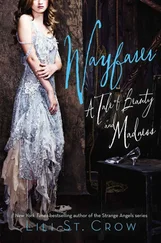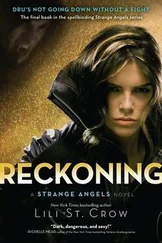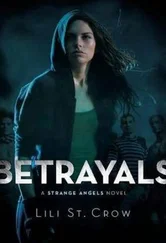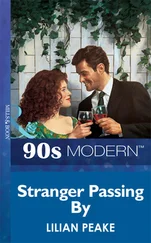What if he doesn’t? Answer me that, Dru. What if he doesn’t ?
That was what I was trying not to think. He’d always come home before, sometimes at dawn. He’d never been completely gone overnight, or left in the morning without leaving me a note. He called to check in. It was just what he did.
My forehead was fever-hot. So were my cheeks. My hair hung down in curling strings, dark brown with threads of gold, darker and stringier than Mom’s. I felt greasy all over, and the zit on my temple hurt along with the rest of me. My stomach rumbled. I was hungry.
I decided to get up. I couldn’t crouch on the toilet forever. Dad would come home; he would . I’d wait for him.
In the meantime, I’d take a shower. I’d clean up the house so I had something to do, and so when he came home he wouldn’t have to look at a mess. That would make everything all right. He might be wounded or tired when he came home, so I’d get out the first aid kit and make sure everything was ready for whatever had happened to him.
Yeah. Do that, Dru. That’ll make everything just about okay. Just ducky.
I wiped and stood up, stepped out of my jeans and panties, and dragged Mom’s quilt back into my bedroom. I grabbed fresh clothes and went back to the bathroom to clean myself up.
First a shower, then I’d clean up the kitchen. After that, the living room. I’d get out the first aid kit and restock it.
Yeah. That was what I’d do.
So I did it.
It started snowingagain late in the afternoon, big wet spinning flakes from a sky like smooth-beaten iron. I went outside to look at the driveway, shivering in Dad’s green Army sweater. I didn’t have much in the way of winter clothes; pretty much all my wardrobe was summer stuff since we’d spent so much time below the Mason-Dixon. We’d been down south for at least two years, between the Carolinas, Baton Rouge, Chattanooga, Atlanta, and Florida. If I tanned at all instead of burning, I might have looked even weirder up here with the goddamn polar bears.
I tilted my head back and looked up into infinity. Snow whirled out of the half-darkness, each flake bigger than a quarter and very wet. They stuck to my hair, still damp from the shower. Dad’s sweater was way too big for me, and I had the cuffs turned down so they covered my fists, clenching and releasing. I had to take a deep breath to uncurl my hands before I trudged back inside.
I’d already done three loads of laundry and cleaned up the kitchen. The heater was going; it was nice and warm. I was organizing the boxes in the living room, unpacking some and arranging things. I’d already gone through some of the ammo cache and organized the clips according to the guns they were for. Dad would be oiling the rifles soon—it was about that time of the month. Taking care of your gear is essential, especially when you’re after things that may or may not be able to mess with complex machinery and electronics. That’s why Dad didn’t carry a cell phone, they were like magnets for poltergeists and other things.
I tried not to think about it.
My stomach growled and I felt weird, like my head was full of rushing noise. I drank four glasses of tap water through the afternoon, sucking them down in between whatever I was doing, and that helped with everything except the roaring tornado between my ears.
Snowy light came through the windows; the blinds were pulled up. I could see a stretch of the front yard and the clogged street. Some cars had struggled by during the afternoon, none of them fishtailing, all of them wearing snow chains and rattling into their own driveways down the street.
None of them was Dad. I checked every time I heard the clattercrunch of chains or the sound of an engine. They all trundled past to their warm garages, ignoring our lonely house out at the end of the lane. Dad had picked this house because it was solid, but also because it stood apart from the others—which is more of a rarity than you’d think in the Midwest, since they have all that prairie space to shut out.
I was on my knees putting the last clips in the box when I heard something tapping in the kitchen.
Tip-tap. Tip-tap. Taptaptap.
My skin chilled, gooseflesh rising hard and fast on my arms. My head jerked up, hair falling in my eyes. It wasn’t frizzing today, for once. Go figure—the day I stay home from school I have good hair.
What the hell is that? It wasn’t the screen door on the enclosed porch back there rattling; I already knew that sound.
The gooseflesh didn’t go away, little nuggets of ice under my skin.
Tap. Tap. Like little rubber-covered sticks drumming hard against a windowpane. My mouth had gone dry and my fingers were numb. Then I got the taste of oranges and salt in my mouth, and I knew something bad was about to happen. Gran called it an “arrah”; it was only later I found out she meant “aura.” Like before a migraine, or the envelope of light Gran always said you could see around people if you had enough of the touch.
With me it was always oranges, and salt. Not real oranges, either. I can’t explain it better—it’s like wax oranges, maybe.
Oh shit. Shit.
The strangest thing of all was how calm I was. The light was failing—even if snow bounced back streetlight shine, it was getting darker. I always expect creepiness around dusk, and I had the howlin’ heebie-jeebies anyway.
I got up, my legs turning to wood and shaking like an earthquake had hit. Then I scooped Dad’s spare bowie knife off the top of a half-unpacked box. The living room looked like a bomb had hit it; I realized I’d just been unpacking half a box and wandering on to the next. The taste of oranges got stronger, and the tapping came again, a creaking, scratching sound, like small nails against a window.
I held the knife the way Dad taught me, flat along the forearm with the hilt clasped in my hand. That way you can hit someone in the face with the pommel and you can get your triceps and lats—some of the stronger muscles in your body, especially if you do triceps dips or lat pulldowns—into the action. And if you slash up you have your biceps getting busy too, plus you can keep better control of the knife.
Go quiet, Dru. It was Dad’s voice in my head, now. A soft whisper, like he was teaching me how to concentrate on a target. Go quiet and take cover on that side of the hall. It’s coming from the kitchen. Do it like I taught you.
I edged down the hall, cursing the boxes set along the side I should have been taking cover against. The kitchen light was on, sending a rectangle of golden glow into the hall and covering the foot of the stairs. The heater clicked off, and the tapping sped up.
Taptaptaptap. Pause. Taptaptap. Taptap.
My heart lodged in my throat, a chunk of beating meat. The big muscles in my thighs trembled like I’d just finished running a hard mile and a half. I slid slow and easy down the hall, little bits of the kitchen coming into view.
The thing they don’t tell you about in situations like these—and by “they” I mean horror movies, which are generally better training for this sort of thing than you’d think—is how your field of vision constricts, everything getting narrower and narrower. You can’t see enough, and peripheral vision plays tricks on you. The eyes flick around frantically, trying to take everything in and failing miserably. I stepped in front of the stairs and saw the sink, the stove, a slice of the kitchen table.
The window over the sink was empty, full of snowlight. I let out a soft breath through my mouth, as quiet as possible. My heart pounded in my ears like a drum solo in a pair of headphones. The taste of wax oranges got stronger, turned thick and cloying. Rotting in my mouth.
Читать дальше












